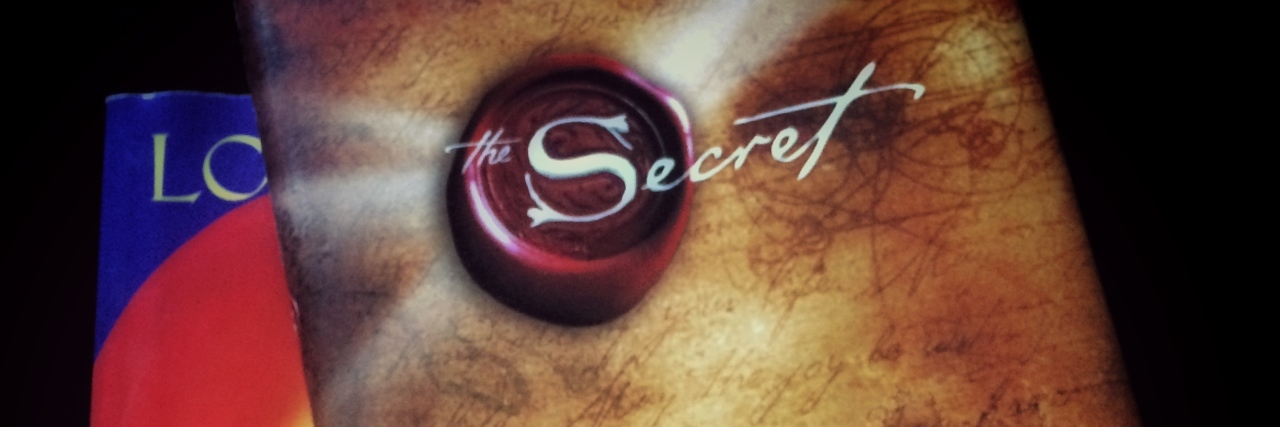The Problem With Modern Ideas That We Can Heal Ourselves Using Willpower
I was diagnosed 12 years ago with a disabling chronic illness. I sought help, as one often does when faced with such circumstances. Down the rabbit hole I went, exploring all avenues of health and wellness I could find. During the end of one such appointment, the practitioner picked a book off her shelf.
“Here let’s see…(thumbing through index)…chronic disease…Aha! Probable cause: A refusal to change. Fear of the future. Not feeling safe. New thought pattern: I am willing to change and to grow. I now create a safe, new future.”
I sat there confused. My facial expression likely conveying this as well. She literally described the internal experience of everyone I knew. Somehow though, my thoughts were… extra potent? …because I got sick and they didn’t…?
She continued, “Have you seen the movie The Secret? I think you should really watch that movie. It teaches you how your thoughts are what create your reality. Ask the universe what you want, believe you have received it and then you receive it. You have the power to reshape your entire reality. I think this could really help you.”
That was both my first and last appointment with her.
According to these theories, it was my fault my body was not able to recover from the initial viral infection that brought on my disease. It was a failure of will, a deficit of character, the result of my thoughts or me not believing enough that I am fully healed (otherwise the universe can’t grant you health, duh). The implications of such ideas are tremendously harmful to anyone struggling with mental or physical illness. As if we don’t face enough stigma and shame already, now we can be blamed for our illnesses too.
I wish saying affirmations and making vision boards could heal disease. I do affirmations every day because I just feel more empowered afterwards. I do make vision boards because I like to put my dreams down somewhere. Does this guarantee they will all manifest? No, because nothing in life is a guarantee. John Lennon said it best: “Life is what happens to you while you’re busy making other plans.” What these books fail to recognize is that there are many factors beyond our control in life. Don’t get me wrong, positive thinking is huge for overall wellbeing. Positivity, however, is not a security blanket from unwanted events unfolding in your life. People can be dealt a shitty hand; bad can happen to good people. Good can happen to bad people. These aren’t a direct reflection of one’s manifestation powers.
I also have another problem with these books. That is, they instill fear. Fear from feeling or thinking anything other than perpetual rainbows and butterflies. When you are living with mental or physical illness, this is never the case. Why? Because life can be hard living with them, and we are human. Connecting to your feelings, and feeling them, is true emotional health. There is no affirmation antidote that is going to take away grief, if that is what you need to feel for a certain time. You cannot transcend the human experience by suppressing anything you deem negative. Emotional health is about balance, the good and the bad.
I wish imagining your body to be healed was the answer for everyone. It would have prevented my dear friend from passing away from leukemia when we were 21. She fought as hard as she could. If anyone had positive thoughts, intention, strong will and determination, it was her. The last thing I would would want her or anyone else to feel in that situation is blame. Please remember this: You are not responsible for your illness, you are responsible to your illness. This difference is key. Being responsible for your illness can only cause you to react to it with shame, blame and guilt. Being responsible to your illness means you can respond to it with self-compassion, love and care. What a difference this makes to one’s relationship to their body, and the vast experiences within it.
We want to hear your story. Become a Mighty contributor here.

